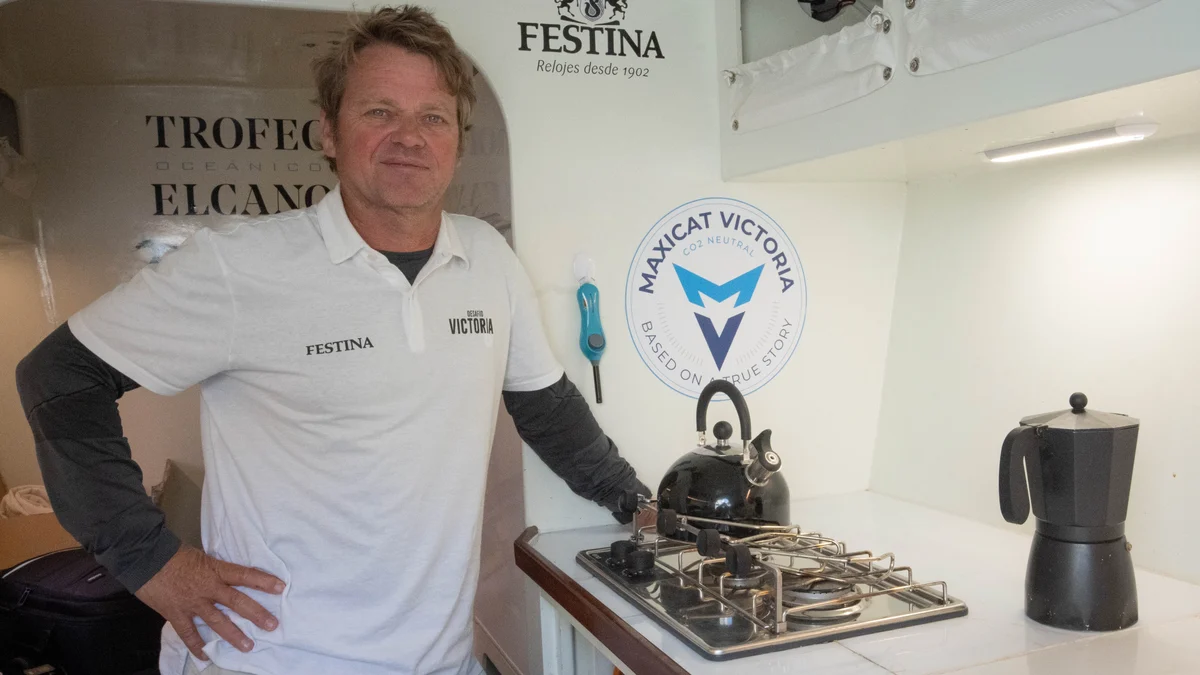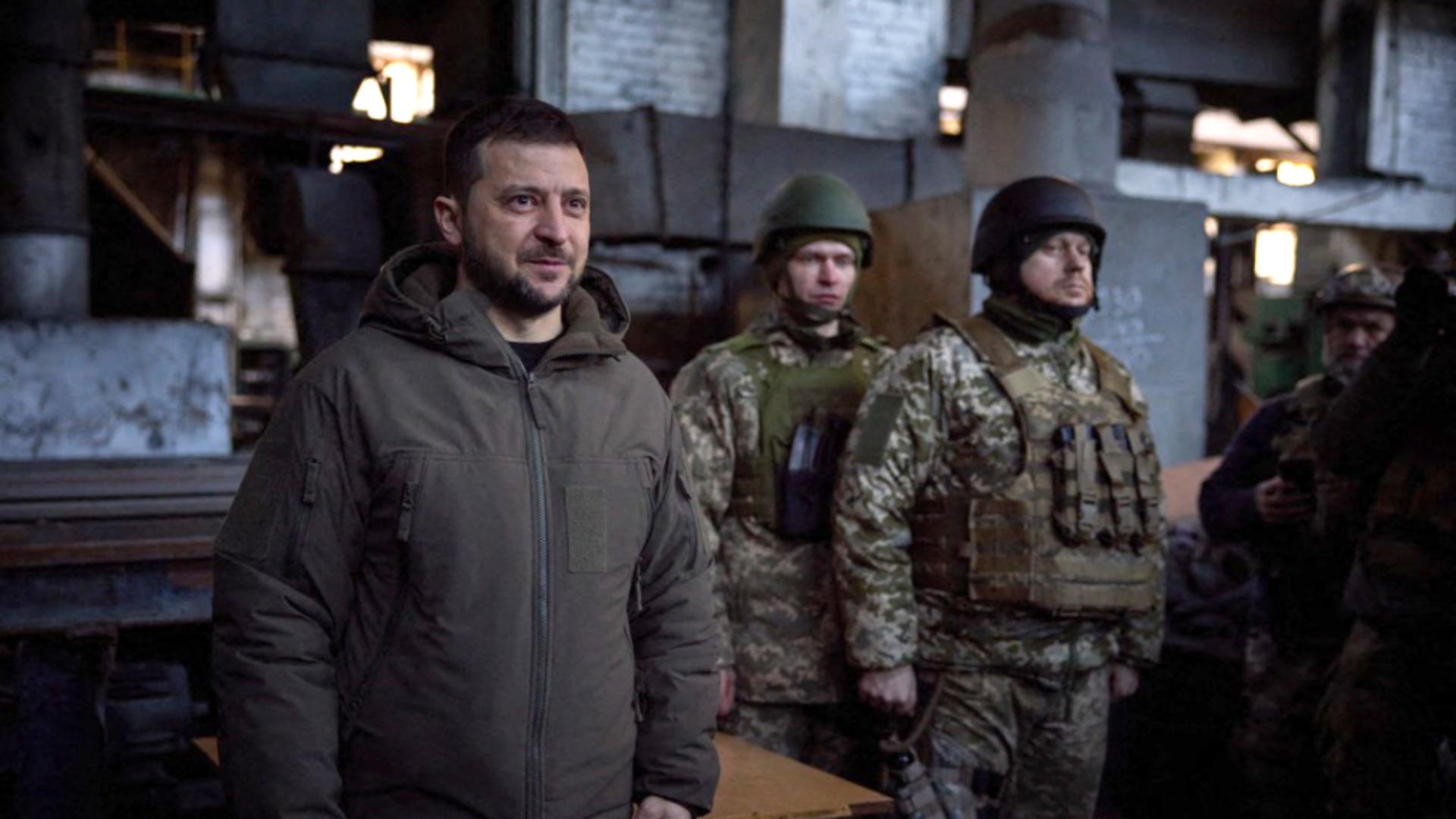In Seattle, you can pretty much throw a dart on the sidewalk and hit a singer-songwriter. But Tyler Ramsey— who is extremely tall and impressively bearded—tends to stand out in any crowd, just as he did back in 2019, when producer (and local legend) Phil Ek spotted him walking around before a show at the Columbia City Theater.
“My wife and I were going to dinner and a movie, and we pulled off this road,” Ek recalls. “I saw this bounding, longhaired man who is taller than me. I’m 6’ 6,’ and Tyler’s like 6’ 7’ or 6’ 8’—I don’t know how tall. I kinda craned my neck and looked in the rear view mirror, like, ‘That has to be Tyler.’ We got to the theater and I texted him: ‘Did I just see you walking down the street?’”
That random, seemingly minor encounter turned out to be a crucial moment in Ramsey’s career—planting a seed for what would become New Lost Ages, his stirring and colorful fifth LP. Ramsey and Ek first become friendly after running into each other at various shows around Seattle—neither remembers exactly which ones—but they didn’t work together until after Ramsey joined Band of Horses, purveyors of big-hearted indierock catharsis, as a guitarist for their 2007 tour. Soon after, the quintet began sessions in Asheville, N.C.—Ramsey’s hometown— for 2010’s Infinite Arms, with Ek coming onboard as the project’s producer.
Despite their strong collaborative track record—Ek worked on the band’s first two “really strong” albums, 2006’s Everything All the Time and 2007’s Cease to Begin— the two camps parted ways, and Band of Horses wound up finishing Infinite Arms themselves.
Still, Ramsey remembers being impressed by Ek—whose credits include Fleet Foxes, Modest Mouse, Built to Spill, The Shins, The Dodos, The Walkmen— noting his attention to detail and uncanny ability to dial in a powerful performance. “I got to know him pretty well back then. He told me at one point that he felt kinda sorry for me because I was still the new guy,” he says with a laugh. “It was a pretty crazy time. The record turned out good. It would have been nice to finish it with Phil, but I still like the way it came out. And I remember how much I learned being in the studio with Phil in just that short amount of time. I remember how that felt, wanting to have a chance to finish a project together.”
In the meantime, Band of Horses steadily evolved into one of their era’s definitive indie-folk bands—and Ramsey was a key part of that equation, adding a painterly quality to their swooning, sky-wide sound. He also wrote or co-wrote several tracks during his three-album tenure, which concluded with 2016’s Why Are You OK. The latter point is crucial: By the time he and Band of Horses separated, Ramsey had already released three gritty, harmony-stacked indie-rock albums under his own name. They are similarly epic to his former band but with their own distinct character, leaning a bit more into twang and showcasing more of his versatile, alternate-tuned guitar work.
But now, perhaps, there was more pressure when Ramsey, without a major band as his day job, resumed that solo career at full force—starting with 2019’s For the Morning, which balanced fingerpicked, pedal steel-laden folk tunes (“White Coat”) with gently swaying rockers perfectly crafted for an amphitheater under the stars (“A Dream of Home”). While Ek thinks the guitarist “added a lot to Band of Horses,” he stresses that he’s always been way more than a hired hand.
“I have a different perspective,” he says. “I knew him before he was in the band, a little bit while he was in the band and after the band. I always thought of him as a songwriter, probably because I met him as one. But what’s so cool about Tyler is he has a very clear, beautiful voice. He has very clear, poignant, emotional lyrics that connect to a lot of people. But he’s also such a cool guitar player. He has a unique way of tuning, and he’s got massive hands, so he can play cool chords, which brings a different vibe.”
This mutual admiration finally became more concrete in 2019, the year of their fateful near-meeting on the street. After Ramsey’s show—a duo performance that July with My Morning Jacket guitarist Carl Broemel—he met up with Ek and made a pledge to stay in touch more sincerely. “We shot the shit and reconnected,” Ek says. “That started the dialogue of us working together.”
***
Luckily—well, sort of—Ramsey had plenty of real-life angst and drama to fuel songs worthy of such a partnership.
“At one point, I had this whole list made of all the things that were falling apart around me,” he says with a laugh. “We had this massive flood around that time. All these things happened back to back to back. I know that’s not uncommon for someone who’s alive in the world—sometimes that’s just the way things roll—but it was hitting me pretty heavy.
“Some of my headspace had to do with parting ways with Band of Horses,” he continues. “But a lot of it had to do with having had that last solo record come out, and I was getting back on my feet with all that stuff—and then I got my footing kicked out from under me by all the things that happened in the world, and I was questioning whether or not I could even continue down the path of being a musician. Everything fell apart, and I was out here just trying to keep it together, knowing that all the work I’d done on that last record got zapped into the void of pandemic times, with the inability to tour on it as much as I’d planned. Also, during that time when I was writing a lot of it, we found out we were getting ready to have our second child. That was a beautiful feeling, but with things falling apart, it also added to my sensation of, ‘Ah, what’s happening here?’”
During that stressful time, Ramsey sought solace in nature. Given that he lives in Candler, N.C., essentially at the foot of the gorgeous Mount Pisgah, he had plenty of options. His family found their home around “seven years ago, after we sold our house in Asheville, with kind of the desire to raise our daughter somewhere with a little more elbow room, not dodging cars and participating as much in the daily consumer-y life that tends to go with living right in town.”
He elaborates: “It’s a gorgeous place, and we’re near the Blue Ridge Parkway. There are trails, and we’ve got a little creek going through our property. There are a couple of big pastures and a barn. We back up to a mountain, and there’s a wooded, steep hill behind us.”
Still, much of the album was sparked during a sort of backyard vacation—a three-night writing retreat at a neighbor’s cabin a couple miles away. “The cabin is more tucked up in the rhododendrons,” he says. “There’s a fast-flowing mountain stream that comes down past it, and it’s like it’s in a different part of the state or something. That’s where all that stuff happened.
“They were letting me stay as a neighborly, beautiful gift,” he continues. “At the time, I wasn’t making any money [due to the pandemic], so I wasn’t able to pay for anything anyway. But it created this situation where I was able to step away from my world but still be close enough in case something happened and I needed to be home. I was tucked back up in the woods and able to gather my thoughts about everything going on in my life. It was this magical situation. These were weird times in the world, and it provided this safe haven for me to process everything.”
Ramsey wound up with a stash of stirring demos, mostly just guitar and vocals, but he needed Ek’s expertise to truly bring them to life. “I just took the reins and went for it, even though it seems like a total folly to do it at a crazy time like that,” he says. “I needed to make it happen, at least once in my career—to do a record of my own in that sort of way. At the time, I was funding it myself, and I had to take a big leap of faith. I’d wanted to do a record with a producer like Phil, who had his hands on so many amazing records. He shaped a lot of those bands into what they now carry along with them.”
Ramsey sent over what Ek calls “tons of demos,” and they went back and forth for roughly a year through phone and email, workshopping arrangements, choosing songs and planning the overall arc of New Lost Ages. They also spent a lot of time catching up as humans.
“We’re older guys with relatively same-age children—that was another connecting point,” Ek recalls. “Then with the pandemic—‘How are you doing over there, man? This is some weird shit!’ It kept us talking about, ultimately, making this record.”
A good example of their creative dynamic is “These Ghosts,” the album’s surging opener, which arose from one of their strategic conversations: “I think [I put] the bug in his ear: ‘Hey, man, let’s make some ‘Tyler rock songs,’ just to have a bigger palette.”
Ramsey is happy they went down that road: “When I started writing ‘These Ghosts,’ I knew that it’s a little different from some of the stuff I’ve done in the past. Phil really latched on to that song, along with the other folks I was playing the demos for. I was a little nervous to record it because I knew we had to handle it properly.”
***
Eventually, Tyler wound up at Seattle’s Avast Recording Co., where Ek had previously tracked a handful of classic indie-rock LPs, including Everything All the Time, The Shins’ Chutes Too Narrow and Fleet Foxes’ self-titled debut.
“Ultimately, him coming here [made sense] because we had cheaper studios and players were available,” Ek says. “Also, sometimes it’s good for artists to not be where they live, just to focus, and that was enticing to him.”
Through their respective connections, a circle of musicians came together seamlessly: Bassist Morgan Henderson (Fleet Foxes) and drummer Sean T. Lane (Ann Wilson) ended up anchoring the rhythm section, and Ramsey brought in a few ringers for the final touches, including Broemel on guitars/pedal steel and Scott Moore on strings.
In typical Ramsey fashion, these songs would have worked with the embellishments stripped away—you can practically feel their cabin DNA.
“Tyler can play interesting chords, which brings a different vibe,” Ek says. “He uses [these] overtones in his playing, but he also [combines] clear, high vocals over sometimes very detuned guitars. Those two sonic connections are very emotional.”
But Ek’s magic touch is also obvious, adding a punch and precision that elevates everything from tearful piano ballads (the title track, a document of faded innocence) to haunted, psychedelic soundscapes (“Dark Dark Dark,” which chronicles, according to Ramsey, “depression and being in a bad place”).
“I wrote that song in 10 minutes,” Ramsey says of the latter. “I was reading Jeff Tweedy’s book [2020’s How to Write One Song]. I don’t really use techniques that I apply to my writing, like, ‘I’m gonna free-write three pages every morning.’ But there was something in there about a 10-minute song. I sat down at the piano and wrote that song—the chords, lyrics and everything.”
The final result features one of the album’s highlights—a dizzyingly beautiful guitar solo that, per Ramsey, Ek praised as “the weirdest he’s ever recorded.”
For Ramsey, a through line of this process was delegating, trusting Ek to enrich his songs however he wanted. “I have a tendency to shoot myself in the foot a little bit and underdo things,” he says. “I have this approach that I want things to sound a little rough or underdone. That’s my own personal taste.”
However, the performances here feel more sculpted, more classic—with a real sense of grandeur.
“The fact that [Ek] wanted to give it his all to make this record definitely showed,” Ramsey says. “I told him early on when we were talking about working together: ‘I’m gonna trust you, and I want you to tell me if there are things you want me to change. With the songs, if there’s something wrong with the lyrics—if we need to work on them—I’ll do it. If we need to work on arrangements, tell me what you want and we’ll do it. I’m giving into the fact that you’re steering the ship, which is something I’ve never done before.’ I’ve worked with people in the past, but I’ve always held on to the reins. So that was a cool part of this: the amount of trust that I felt I could give to him.”
In a sense, New Lost Ages is the closing of a once-seemingly anti-climactic chapter— bringing together a pair of kindred spirits who’d been separated by bad luck, ill-fated timing and even a pandemic. It was worth the wait—and, for Ek, the effort: “Not that everything he’s done isn’t important, but since he hasn’t done it in a bit, since he’s not been in Band of Horses [for several years], I wanted to help him make an important record—a record that people would think about and connect to, and would write about and be stoked on. I hope that is the case.”
“It’s definitely an album,” Ramsey says. “I’m in love with that art form, as much as we’re all getting away from that. [Despite] the availability of media in general and how fast we cycle through things, I just feel like there’s nothing really more beautiful than albums. I love when people make cohesive bodies of work, and I feel like we did that. This album covers a lot of ground, but it’s not some out-of-left-field step away from what I’ve done in the past. It’s just a big step forward.”
The post Tyler Ramsey: These Ghosts appeared first on Relix Media.





